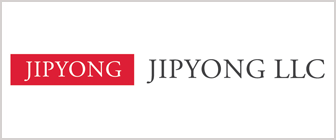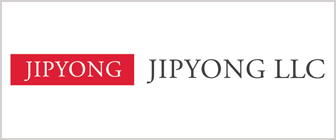On 16 July 2025, the Seoul Central District Court rendered a notable decision concerning the enforceability of contractual share repurchase rights against company founders in the context of insolvency proceedings (Seoul Central District Court, 2024GaHap59259). The case involved a venture capital investment in redeemable convertible preferred shares (“RCPS”) and a clause allowing the investor to require either the company or its CEO to repurchase the shares upon commencement of rehabilitation proceedings.
The Court upheld the enforceability of this clause and ordered the CEO to pay more than KRW 1.25 billion to the investor. In doing so, the Court rejected arguments that the clause violated fundamental principles of Korean civil and corporate laws, including public policy (Korea’s Civil Code Arts. 103 and 104), the shareholder equality principle, and the capital maintenance principle.
The ruling engages with the boundaries of contractual freedom in venture investment agreements and provides important guidance for structuring investments in Korea.
1. Case Overview
The dispute arose after Company A, a financial investor, acquired RCPS issued by Company B – a business involved in system software development and supply, interior construction business, and e-commerce retail. Under the RCPS acquisition agreement, Company A was granted the right to require either Company B or the CEO of Company B (“the CEO”) to purchase back Company A’s shares if certain events occurred, including the commencement of rehabilitation, liquidation, or bankruptcy proceedings.
In December 2023, Company B filed for rehabilitation, and in January 2024, the Seoul Bankruptcy Court approved the commencement of proceedings. Following this, Company A exercised its repurchase right against the CEO, demanding repurchase of the shares in accordance with the contract. The CEO refused to comply, and litigation ensued.
2. The CEO’s Arguments
The CEO raised several defenses to avoid liability. The CEO first argued that the repurchase right clause was void under Articles 103 and 104 of the Korean Civil Code because it was contrary to public order and morality and imposed an unfairly excessive burden on him despite the absence of any fault. In the CEO’s view, the clause shifted all investment risk onto the CEO, thus effectively penalizing the CEO for the company’s financial difficulties.
The CEO also asserted that allowing one investor to secure repayment through such a clause violated the principle of shareholder equality, since no other shareholders were afforded similar protection. In addition, the CEO claimed that the clause contravened the principle of capital maintenance by guaranteeing repayment of invested capital – a practice prohibited under Korean law in order to safeguard the company’s capital base.
3. Court’s Reasoning
The Court rejected the CEO’s arguments in their entirety. On the Civil Code defenses, the Court held that the CEO voluntarily entered into the agreement in the capacity of an interested party and did so after reviewing its terms. The Court found that at the time of contracting, Company B was financially sound, and there was no evidence that Company A abused its bargaining position to impose unfair terms. Furthermore, the clause was not a penalty because it was not tied to breach or misconduct but rather to the objective event of rehabilitation.
As for the shareholder equality principle, the Court drew a distinction between relations among shareholders and the company (where equality applies), and private arrangements between individual shareholders or officers (where equality does not). Because the CEO’s obligation arose from a personal contract with the investor, it fell outside the scope of shareholder equality.
On capital maintenance, the Court observed that Korean law prohibits arrangements that effectively guarantee investors the return of their contributed capital by the company itself. However, the CEO’s obligation was personal and independent from Company B. Since the company’s assets and capital base were not implicated, the clause did not constitute an unlawful refund of capital.
4. Comparative Perspectives
The Court’s reasoning reflects common themes and approaches in other jurisdictions, where both shareholder equality and capital maintenance principles occupy important positions in corporate law, albeit in different forms.
In Japan, shareholder equality is expressly codified in Article 109 of Japan’s Companies Act, which requires equal treatment of shareholders of the same class. The principle is applied more stringently than in the United States or the UK, but courts have recognized that differential arrangements may be permissible if not inconsistent with company-level equality.1) Japan’s capital maintenance rules also prevent companies from returning invested capital except under statutory provisions governing lawful dividends or share repurchases (Japan’s Companies Act Art. 461). At the same time, personal guarantees by founders or controlling shareholders are largely enforceable under general contract law and do not enjoy additional protections which apply to third-party guarantors (Japan’s Civil Code Arts. 465-6 to 465-9).
In the United Kingdom, the Companies Act 2006 provides that shareholders of the same class must be treated equally with respect to rights attached to their shares (UK Companies Act 2006, Part 17, Chapter 9). However, shareholders remain free to enter into agreements vis-à-vis each other so long as such private shareholder agreements do not fetter the statutory powers of the company.2) In contrast, capital maintenance rules are particularly strict, since distributions and buybacks must be funded out of distributable profits and follow statutory procedures (UK Companies Act 2006, Parts 18 and 23). If capital is unlawfully distributed to a shareholder, that shareholder is liable to return it to the company (UK Companies Act 2006, Art. 847). As in Korea, however, personal undertakings by founders are generally enforceable, since they do not affect the company’s capital base.
Finally, turning to the United States, Delaware’s General Corporation Law (“DGCL”) is particularly noteworthy, due to Delaware’s renowned specialized business courts and the fact that most of Fortune 500 companies are registered in the state. Delaware law protects shareholder equality indirectly through fiduciary duties and statutory provisions such as DGCL § 242(b)(2), which requires class consent when rights are adversely affected. However, Delaware law permits a corporation to enter into a private stock-holder agreement with current or prospective stockholders (DGCL § 122(18)), enabling investors to negotiate specific benefits and conditions directly with the corporation in addition to private agreements among other stockholders. Capital maintenance is safeguarded under Delaware law by the requirement that dividends and redemptions are only permitted from surplus or profits (DGCL §§ 160, 170) – with directors potentially liable for unlawful distributions (DGCL § 174).3) Crucially, however, personal guarantees by founders or officers remain enforceable as ordinary contracts and are generally not affected by capital maintenance rules.
Taken together, these comparisons reveal the Seoul Central District Court’s decision to be broadly consistent with international practice. Across jurisdictions, shareholder equality and capital maintenance protect against abuse of corporate assets and unequal treatment within the company. At the same time, personal undertakings by founders are widely permitted, providing investors with an important supplementary mechanism to secure repayment.
Conclusion
The Seoul Central District Court’s decision provides important clarification for venture investors in Korea. By distinguishing corporate obligations, which remain constrained by shareholder equality and capital maintenance principles, from personal obligations of founders, which are enforceable under ordinary contract law, the Court has confirmed the validity of founder-backed share repurchase rights.
For both investors and founders seeking venture capital, the judgment underscores the importance of structuring protections carefully. On one hand, investors should ensure that (i) any founder undertakings be drafted as personal obligations, separate from the company’s assets, (ii) triggers for enforcement are defined in clear and objective terms, such as the commencement of rehabilitation, and (iii) pricing mechanisms are transparent and defensible as genuine purchase terms rather than disguised penalties. On the other hand, founders should carefully weigh the extent to which they are willing to personally guarantee venture capital investments in their business.
This decision ultimately aligns Korea with international practice, in that while company-level guarantees of capital return are prohibited, founder-backed undertakings remain a valid and enforceable tool to mitigate investment risk. Both company founders and investors entering the Korean venture capital market should take note of this distinction when negotiating investment agreements.
(Link to Korean Newsletter)
1) SCOJ 2007 No. 30.
2) Russell v Northern Bank Development Corp Ltd [1992] 1 WLR 588.
3) Klang v. Smith’s Food & Drug Centers, Inc., 702 A.2d 150 (1997)



